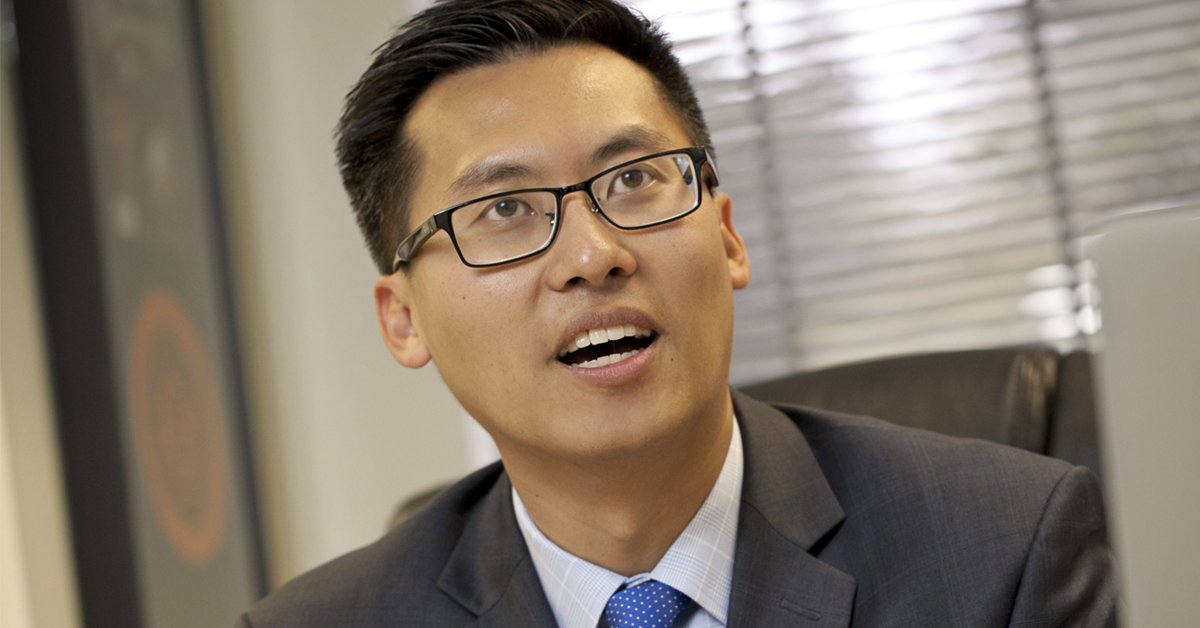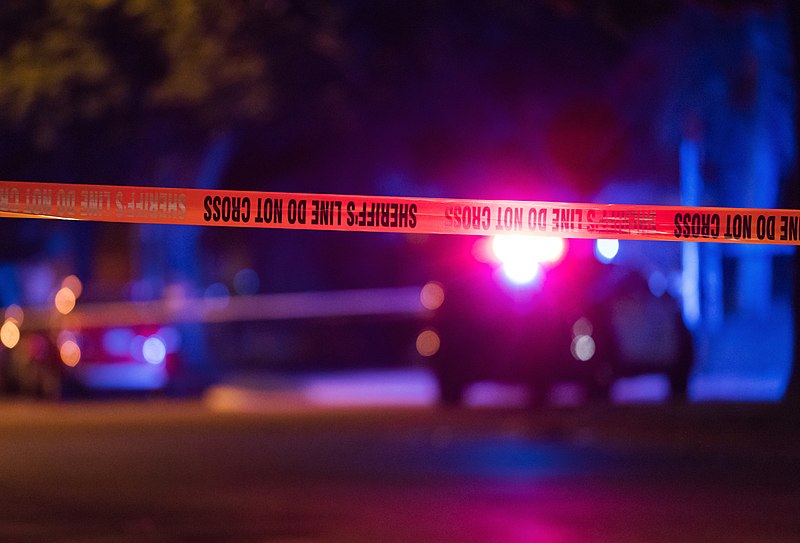The Chief compared Fresno to the three areas of study in Rosenfeld’s report.
“We periodically see signs of heroin in Fresno, but not like you’re seeing on the East Coast,” Dyer said.
There was no need for Dyer to go into detail about the California’s decision to empty its prisons. The Chief has been a fierce critic of this policy for several years.
That brought us to the Ferguson Effect.
“I do believe at times, depending on what’s occurring in certain cities in America, you do see more cautious policing, more selective policing,” Dyer said. “But I think you see most of that on the East Coast. Some of those large cities have experienced large-scale riots and have indictments of officers. You saw that in Baltimore – six officers indicted, all innocent.
“When you see those indictments occur, that sends a chilling effect on police officers in that particular agency and maybe agencies nearby. That’s because the officers are thinking to themselves: ‘I come to work, I do my tour of duty, I do everything I believe to be right in the course of my job. Then I make a split-second decision that is deemed to be either inappropriate or perceived inappropriate. Now I’m being indicted.’ That may cause other officers to think: ‘Why do I want to be so proactive?’
“Whereas in Fresno, I don’t believe we’ve seen that. Every night we still have officers that are out there making traffic stops, taking guns off people – four or five guns a night taken off of gang members. I do believe our officers feel supported – by me, and by this community by and large. That allows them to go out there and be proactive and save lives. In some cities, I’m not sure (officers) feel that way.
“In some cities police chiefs have been fired over the actions of their officers. That also can cause the next chief to not be as supportive of the actions their officers out in the field for fear of losing their job, and the officers sense that. I do believe some of that has occurred.”
As to the “de-policing” aspect of the Ferguson Effect, Dyer said it’s real in certain cities (which he didn’t identify).
“Police chiefs across the country are not going to want to admit that they have de-policing or selective policing in their organizations because that could perceived as failed leadership,” Dyer said. “But I do think that, from time to time and in different locales across the country, it has occurred.”
So, I asked, does the chief of police in Fresno ever stand in front of his officers and tell them to be meek when it comes to enforcing the law?
“Actually, just the opposite here,” Dyer said. “Ever since Ferguson, I’ve tried to share with the officers wherever I can that I do support them”
During orientation for new officers, Dyer said, “I share with them, ‘I’m going to be there to support you. If you’re wrong, then that’s a different story. But if you’ve done everything you know to be right and you make a mistake, I’ll support you.’
“I believe that message goes a long way toward giving officers the freedom to go out there and do their job.”
But, as we’ve seen, many people resent the fact that police officers are authorized by our democracy to enforce the law fairly and equally among all people in their jurisdiction.
One of them is San Francisco 49ers quarterback Colin Kaepernick. He has refused to stand for the national anthem prior to the opening kickoff of the 49ers’ last two exhibition games. He said he’s protesting, among other things, policing standards across the nation.
“There’s a lot of things that need to change,” Kaepernick said. “One specifically? Police brutality. There’s people being murdered unjustly and not being held accountable. People are being given paid leave for killing people. That’s not right. That’s not right by anyone’s standards.”
I won’t try to decipher the logic of that statement. Is he saying police officers involved in lethal shootings are to be automatically denied due process of the law? Or perhaps he wants the authority to be judge and jury on all officer-involved shootings. I don’t know, although we can be sure we’ll hear more from Kaepernick on these issues in the coming months.
But I do know many journalists support Kaepernick’s protest. I know some NFL players support Kaepernick’s protest. And I know many Americans give a great deal of credence to the political comments of sports stars.
That’s a surefire recipe for the start – and spread – of a Kaepernick Effect.
It’s not unreasonable to suggest that the Ferguson Effect in some degree led to the killing of five peace officers in Dallas and the killing of three peace officers in Baton Rouge.
Nor is it unreasonable to suggest that the Kaepernick Effect, given enough time to spread throughout our celebrity-besotted culture, could lead to the further de-legitimization of our men and women in blue.
The Jerry Dyer Effect is the opposite of the Ferguson Effect and the Kaepernick Effect. But how much longer will he be the chief?
Dyer celebrated his 15th anniversary as Fresno’s top cop on Aug. 1.
“There have been a lot of good times in the first 15, and there have been a handful of days where maybe I wished I’d been in a different profession at that time,” Dyer told me with a smile. “But it’s been a good 15.”
The 2016-2017 fiscal year figures to be a busy one. Dozens of additional sworn officers are slated to come onboard, giving Fresno 804 sworn officers by next June if all goes according to plan. There will be more promotions to lieutenant and captain levels. A department reorganization is coming. The central policing district is returning after disappearing (due to budget constraints) for several years. A substation will soon open in the Tower District. Patrol officers will get as much as 40 additional hours of training this year. The department will get 75 new patrol vehicles. More officers are being deployed to patrol, enhancing the department’s community policing focus. The southeast policing district is getting a new station. A new property and evidence warehouse will be opened.
And the Chief is 100% behind his officers when they properly do their jobs – which is just about 100% of the time.
There you have the Dyer Effect.
But the 57-year-old Dyer most likely will retire in another two years or so. Part of the reason is the Deferred Retirement Option Program’s time limit. Part of the reason is the nature of politics, locally and nationally.
Will the next chief be influenced by the Dyer Effect or the Ferguson/Kaepernick effects?
Time will tell.
“I don’t know what the future holds,” Dyer said. “But I do know that every day I sit in that chair (the chief’s chair), I am planning for the future.”









